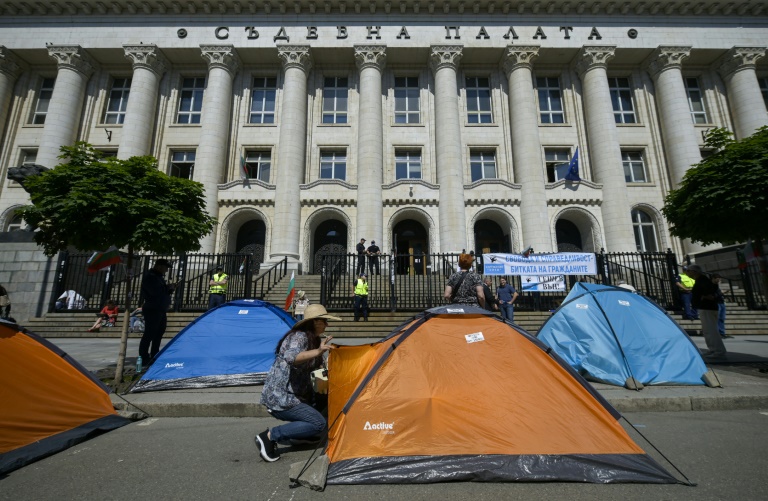Protesters occupied the entrances of the main court house in Bulgaria’s capital Sofia on Wednesday, seeking to bar the country’s chief prosecutor from his office over allegations he has failed to investigate widespread corruption.
The latest protest against Ivan Geshev comes a month ahead of snap elections on July 11 after previous polls in April returned a fragmented parliament with long-time prime minister Boyko Borisov failing to secure a fresh mandate.
Critics have accused Geshev of protecting oligarchs since his appointment to the top job in late 2019, with protests against him snowballing into months of public discontent last summer against Borisov’s government.
Mass protests last summer had also called for Geshev’s resignation.
The US last week blacklisted six Bulgarians — including notorious oligarch and media mogul Delyan Peevski and ex-gambling tycoon Vasil Bojkov — for their “extensive” roles in corruption, sparking a fresh round of demonstrations.
Several tents put up by dozens of protesters outside the Justice Palace in Sofia carried slogans that called Geshev as a “mafioso” and “disgrace”.
They also called for help from the European chief prosecutor, reading “Laura Kovesi, Bulgaria needs you”.
“Ivan Geshev transformed the prosecution into a baseball bat of the mafia and a shield defending its interests,” protest organiser Georgy Georgiev from the Boets non-governmental group told AFP.
Bulgaria’s powerful chief prosecutor oversees the work of all other prosecutors and can influence their decisions to launch or drop probes.
Geshev, whose mandate runs until 2026, has been specifically accused of closing his eyes to the activities of former lawmaker Peevski.
The US Treasury sanctioned Peevski for “using influence peddling and bribes to protect himself from public scrutiny and exert control over key institutions and sectors in Bulgarian society”.
The sanctions, which the treasury said were its biggest single action targeting graft under the Magnitsky act to date, revived debate about corruption in Bulgaria.
Under this law, Washington punishes foreign government officials implicated in corruption or human rights abuses.
Joining the EU in 2007, Bulgaria remains its poorest and most graft-ridden member, according to Transparency International’s corruption perceptions index.











